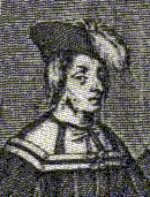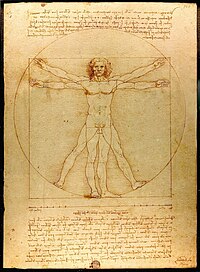
The Renaissance is a period in history and a cultural movement marking the transition from the Middle Ages to modernity, covering the 15th and 16th centuries and characterized by an effort to revive and surpass the ideas and achievements of classical antiquity; it occurred after the crisis of the Late Middle Ages and was associated with great social change in most fields and disciplines, including art, architecture, politics, literature, exploration and science. In addition to the standard periodization, proponents of a "long Renaissance" may put its beginning in the 14th century and its end in the 17th century. The traditional view focuses more on the Renaissance's early modern aspects and argues that it was a break from the past, but many historians today focus more on its medieval aspects and argue that it was an extension of the Middle Ages. The beginnings of the period—the early Renaissance of the 15th century and the Italian Proto-Renaissance from around 1250 or 1300—overlap considerably with the Late Middle Ages, conventionally dated to c. 1350–1500, and the Middle Ages themselves were a long period filled with gradual changes, like the modern age; as a transitional period between both, the Renaissance has close similarities to both, especially the late and early sub-periods of either.

Secular humanism is a philosophy, belief system or life stance that embraces human reason, logic, secular ethics, and philosophical naturalism, while specifically rejecting religious dogma, supernaturalism, and superstition as the basis of morality and decision making.

Religious humanism or ethical humanism is an integration of nontheistic humanist ethical philosophy with congregational rites and community activity which center on human needs, interests, and abilities. Self-described religious humanists differ from secular humanists mainly in that they regard the nontheistic humanist life stance as a non-supernatural "religion" and organising using a congregational model.

Francis I was King of France from 1515 until his death in 1547. He was the son of Charles, Count of Angoulême, and Louise of Savoy. He succeeded his first cousin once removed and father-in-law Louis XII, who died without a legitimate son.

Renaissance humanism was a worldview centered on the nature and importance of humanity, that emerged from the study of Classical antiquity. This first began in Italy and then spread across Western Europe in the 14th, 15th, and 16th centuries. During the period, the term humanist referred to teachers and students of the humanities, known as the studia humanitatis, which included the study of Latin and Ancient Greek literatures, grammar, rhetoric, history, poetry, and moral philosophy. It was not until the 19th century that this began to be called humanism instead of the original humanities, and later by the retronym Renaissance humanism to distinguish it from later humanist developments. During the Renaissance period most humanists were Christians, so their concern was to "purify and renew Christianity", not to do away with it. Their vision was to return ad fontes to the simplicity of the Gospels and of the New Testament, bypassing the complexities of medieval Christian theology.

Paul Kurtz was an American scientific skeptic and secular humanist. He has been called "the father of secular humanism". He was Professor Emeritus of Philosophy at the State University of New York at Buffalo, having previously also taught at Vassar, Trinity, and Union colleges, and the New School for Social Research.

Charles Francis Adams III was an American lawyer and politician, who served as the 44th United States Secretary of the Navy under President Herbert Hoover from 1929 to 1933. He was skipper of the Resolute which won the 1920 America's Cup.
A Humanist Manifesto, also known as Humanist Manifesto I to distinguish it from later Humanist Manifestos in the series, was written in 1933 primarily by Raymond Bragg and published with 34 signers. Unlike the later manifestos, this first talks of a new religion and refers to humanism as "the religion of the future." Nevertheless, it is careful not to express a creed or dogma. The document outlines fifteen affirmations on cosmology, biological and cultural evolution, human nature, epistemology, ethics, religion, self-fulfillment, and the quest for freedom and social justice. This latter, stated in article fourteen, proved to be the most controversial, even among humanists, in its opposition to "acquisitive and profit-motivated society" and its demand for an egalitarian world community based on voluntary mutual cooperation. The document's release was reported by the mainstream media on May 1, simultaneous with its publication in the May/June 1933 issue of the New Humanist.

Christian humanism regards humanist principles like universal human dignity, individual freedom, and the importance of happiness as essential and principal or even exclusive components of the teachings of Jesus. Proponents of the term trace the concept to the Renaissance or patristic period, linking their beliefs to the scholarly movement also called 'humanism'.

Irving Babbitt was an American academic and literary critic, noted for his founding role in a movement that became known as the New Humanism, a significant influence on literary discussion and conservative thought in the period between 1910 and 1930. He was a cultural critic in the tradition of Matthew Arnold and a consistent opponent of romanticism, as represented by the writings of Jean-Jacques Rousseau. Politically he can, without serious distortion, be called a follower of Aristotle and Edmund Burke. He was an advocate of classical humanism but also offered an ecumenical defense of religion. His humanism implied a broad knowledge of various moral and religious traditions. His book Democracy and Leadership (1924) is regarded as a classic text of political conservatism. Babbitt is regarded as a major influence over American cultural and political conservatism.
Pauline, Baroness de Rothschild was an American fashion designer, writer and, with her second husband, a translator of both Elizabethan poetry and the plays of Christopher Fry. She was named, with Diana Vreeland, who was added to this list in 1964, to the International Best Dressed List Hall of Fame in 1969, alongside Douglas Fairbanks, Jr., Dean Acheson, Angier Biddle Duke, Cary Grant, and Prince Philip, Duke of Edinburgh.

Charles Francis Potter was an American Unitarian minister, theologian, and author.

The Italian war of 1536–1538 was a conflict between King Francis I of France and Charles V, Holy Roman Emperor and King of Spain. The objective was to achieve control over territories in Northern Italy, in particular the Duchy of Milan. The war saw French troops invading Northern Italy, and Spanish troops invading France. The Truce of Nice, signed on June 18, 1538, ended hostilities, leaving Turin in French hands but affecting no significant change in the map of Italy. Overall, Spain increased its control over Italy, signifying the end of Italian independence. The war strengthened animosity between the Spanish and the French, and reinforced ties between France and the Ottoman Empire, which had sided with Francis I against Charles V.

Humanism in France found its way from Italy, but did not become a distinct movement until the 16th century was well on its way.

Humanism is a democratic and ethical life stance, which affirms that human beings have the right and responsibility to give meaning and shape to their own lives.

Charles de Bourbon was a French prince du sang and military commander at the court of Francis I of France.

Francis of Bourbon or François de Bourbon,, was the Count of Vendôme and a French prince du sang.

The following outline is provided as an overview of and topical guide to humanism:

The 104th Massachusetts General Court, consisting of the Massachusetts Senate and the Massachusetts House of Representatives, met in 1883 during the governorship of Benjamin Butler. George Glover Crocker served as president of the Senate and George A. Marden served as speaker of the House.












